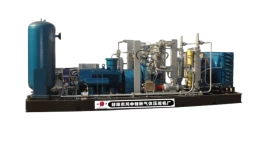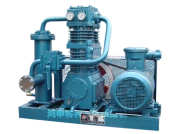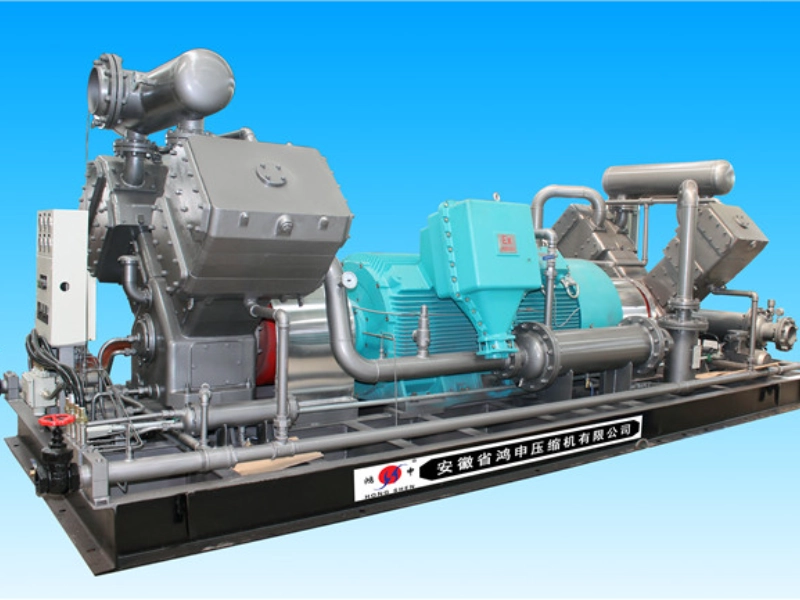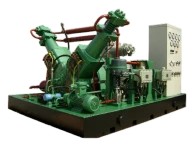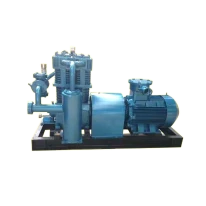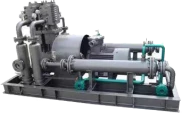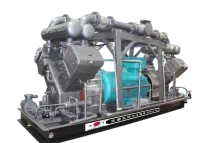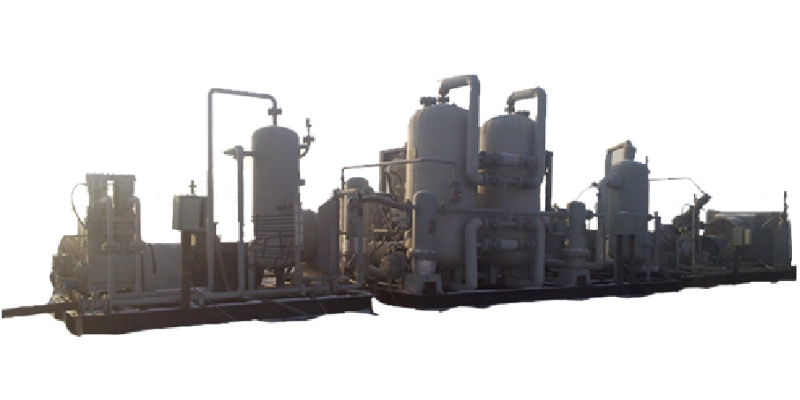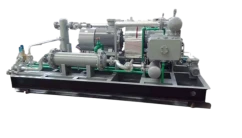Применение компрессоров природного газа при транспортировке газа высокого давления в основном заключается в сжатии природного газа из состояния низкого давления в состояние высокого давления и его транспортировке на большие расстояния по трубопроводной системе.
Основные области применения и функции:
Повышение давления транспортировки природного газа
Когда природный газ хранится под землей, он обычно находится под низким давлением. Во время транспортировки он сжимается до более высокого давления с помощью компрессорная станция стандартного природного газа для преодоления трения в трубопроводах и других сопротивлений, обеспечивая бесперебойную транспортировку природного газа по магистральным трубопроводам.
Принцип работы: Компрессор природного газа механически уменьшает объем газа, чтобы увеличить давление газа. Во время этого процесса температура газа обычно повышается и должна быть охлаждена системой охлаждения, чтобы обеспечить стабильность и безопасность системы.
Транспортировка на большие расстояния и строительство трубопроводов
Трубопроводы для транспортировки природного газа часто охватывают сотни километров или даже более длинные расстояния. В этом случае компрессор используется для поддержания высокого давления газа, чтобы гарантировать, что газ может преодолеть потери на трение в трубопроводе и поддерживать достаточную скорость транспортировки и давление.
Релейная компрессионная станция: при транспортировке на большие расстояния создается несколько релейных компрессионных станций, и на каждой станции устанавливаются компрессоры для повышения давления газа, чтобы обеспечить возможность его дальнейшей транспортировки.
Хранение и отгрузка газа
В газохранилищах компрессоры сжимают природный газ и хранят его в подземных газохранилищах или газовых резервуарах высокого давления. При необходимости газ транспортируется в трубопровод путем снижения давления.
Ограничение пиковых нагрузок и диспетчеризация: компрессор используется для регулировки подачи газа во время процесса ограничения пиковых нагрузок, чтобы гарантировать достаточную подачу природного газа в период пикового потребления газа; а в периоды пониженной нагрузки природный газ можно эффективно хранить.
Очистка газа и контроль качества
Примеси и влага в природном газе влияют на эффективность работы и стабильность компрессора. Перед сжатием требуется предварительная обработка газа, например, осушка и удаление примесей. Компрессор транспортирует очищенный природный газ в нисходящий трубопровод под соответствующим давлением.
Система осушки и удаления примесей: Компрессорная система оснащена устройством осушки и системой фильтрации, которые гарантируют, что качество газа соответствует требованиям транспортировки, а также предотвращают износ или коррозию, вызванные примесями и влагой внутри компрессора.
Применение высокоэффективных и энергосберегающих технологий
Современные компрессоры природного газа использовать множество высокоэффективных и энергосберегающих технологий. Повышение энергоэффективности компрессора не только помогает снизить эксплуатационные расходы, но и снижает потребление энергии и соответствует требованиям по защите окружающей среды.
Технология регулирования частоты: регулируйте скорость в соответствии с изменением расхода газа, чтобы добиться точного управления и повысить энергоэффективность системы.
Система рекуперации тепла: Технология рекуперации тепла используется для нагрева газа или получения другой энергии путем рекуперации тепла, выделяемого в процессе сжатия, что дополнительно повышает коэффициент использования энергии системой.
Решение проблем безопасности в условиях высокого давления
Компрессоры природного газа работают в условиях высокого давления и сталкиваются с большими рисками для безопасности. Для обеспечения безопасности компрессоры природного газа и связанные с ними системы имеют множество мер защиты безопасности.
Взрывозащищенная конструкция: Природный газ является горючим и взрывоопасным газом. Компрессоры и другое оборудование имеют взрывозащищенную конструкцию для устранения потенциальных рисков безопасности.
Устройство защиты от давления: Компрессорная система оснащена устройством защиты от избыточного давления. Как только давление в системе превысит безопасный диапазон, оно автоматически отключится или сбросит давление, чтобы предотвратить повреждение оборудования или несчастные случаи.
Интеллектуальный мониторинг и удаленное управление
С помощью датчиков, систем сбора данных и дистанционного управления, компрессоры природного газа может обеспечить мониторинг в реальном времени и удаленное управление, повышая надежность и эффективность системы.
Интеллектуальная система мониторинга: отслеживая температуру, давление, вибрацию и другие важные параметры компрессора, можно обнаружить потенциальные неисправности и своевременно выдать раннее предупреждение, чтобы сократить время простоя.
Автоматизированная система управления: Благодаря автоматизированному управлению система транспортировки природного газа может автоматически регулировать рабочее состояние компрессора в соответствии со спросом, повышая скорость реагирования и эффективность работы системы.
Благодаря постоянному совершенствованию технологий производительность и надежность компрессоров также постоянно повышаются, что позволяет отрасли транспортировки природного газа развиваться в более эффективном и безопасном направлении.

